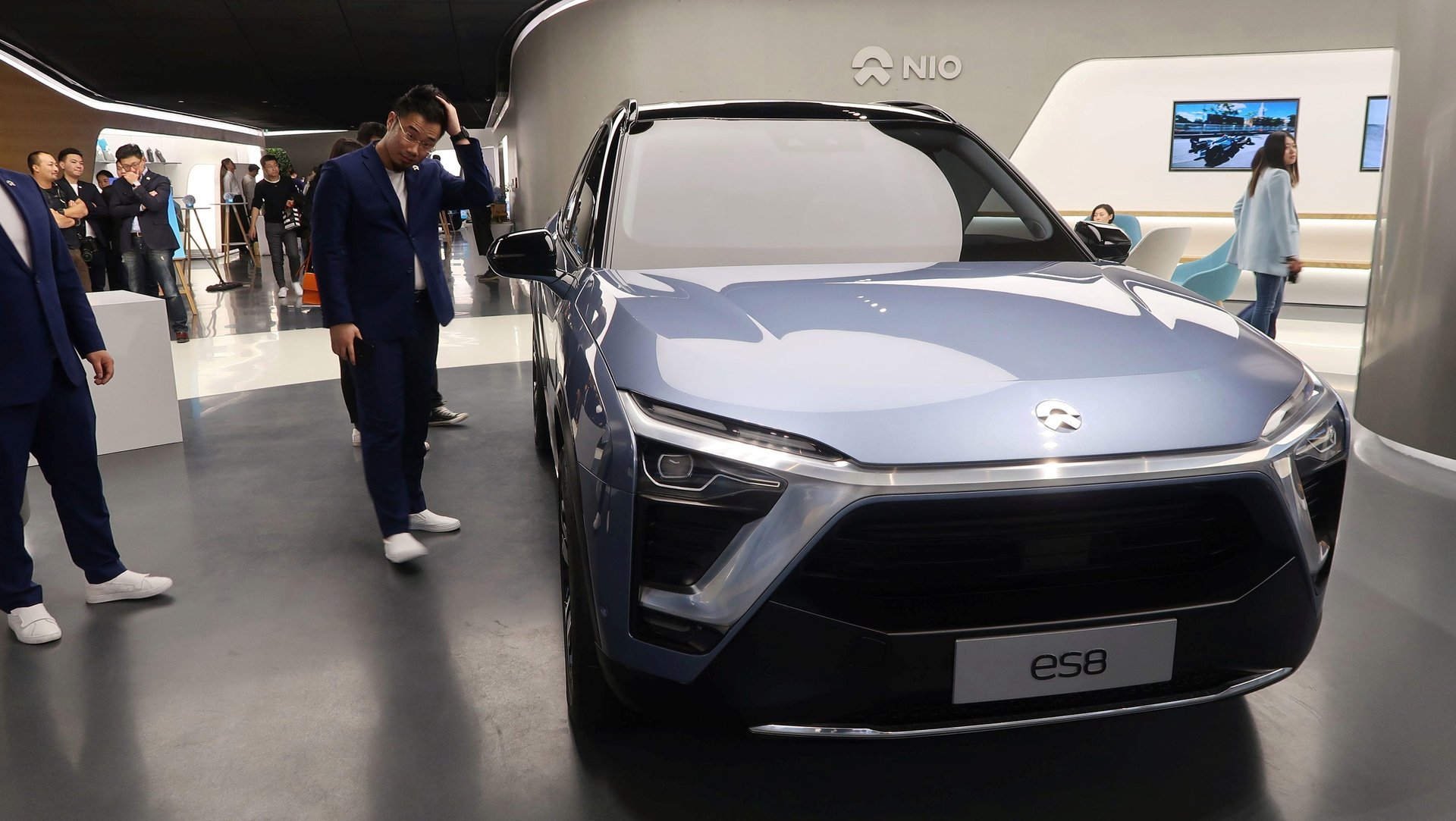A unicorn’s IPO filing offers a glimpse into the health of Chinese EV startups
Investors have poured billions of dollars into China’s electric-vehicle startups in recent years. And now an IPO filing from one of the most high-profile unicorns is finally providing a window into the state of Chinese EV startups.


Investors have poured billions of dollars into China’s electric-vehicle startups in recent years. And now an IPO filing from one of the most high-profile unicorns is finally providing a window into the state of Chinese EV startups.
NIO, a four-year-old Shanghai-based EV firm, on Monday (Aug. 13) filed to go public on the New York Stock Exchange, seeking to raise as much as $1.8 billion. The timing of its filing comes as China tightens subsidies for new-energy vehicles, including all-electric and hybrid cars.
Within China’s EV industry, there are companies from Xiaopeng—an Alibaba-backed startup recently valued at $3.6 billion despite having not delivered a single vehicle yet—to BYD, China’s biggest electric carmaker that has sold nearly 90,000 new-energy vehicles.
NIO falls somewhere in between. In June, it began delivering its first car, the seven-seater ES8. Of 17,000 reservations for the SUV, with a price tag starting at about 448,000 yuan ($65,000), NIO has so far delivered 481 vehicles. NIO’s CEO Li Bin recently suggested that the company could quickly ramp up production to deliver more than 10,000 cars by the end of this year.
But there are worrying signs within its prospectus. The most obvious one is how much money it’s losing: It reported a net loss of 3.3 billion yuan ($502 million) on 46 million yuan ($7 million) of revenue in the first half of the year—the first time it’s generated any revenue at all. In 2017, it suffered a loss of 5 billion yuan ($759 million).
NIO said in its filing it aims to “launch a new model every year in the near future,” including the five-seater ES6 in 2018, with deliveries slated for the first half of 2019. But it also underlined the need to adhere to the deadlines it’s set, having missed the original March delivery target (link in Chinese) for the ES8. One of the most important deadlines to come will be the opening of a production plant in Shanghai by late 2020. “[T]o the extent we need to delay the launch of our vehicles, our growth prospects could be adversely affected as we may fail to grow our market share,” it said in the filing.
The company recognizes that for it to succeed, China’s EV market will have to as well. “[T]he demand for our vehicles and services will highly depend upon the adoption by consumers of new energy vehicles in general and electric vehicles in particular,” it said in the filing.
With the backing of Tencent, one of its earliest investors and biggest shareholders, NIO is taking on these challenges. The struggles of Tesla, a competitor in China, show that being under the public eye can be helpful when fundraising, but it’s not necessarily the best operating environment for an EV startup.